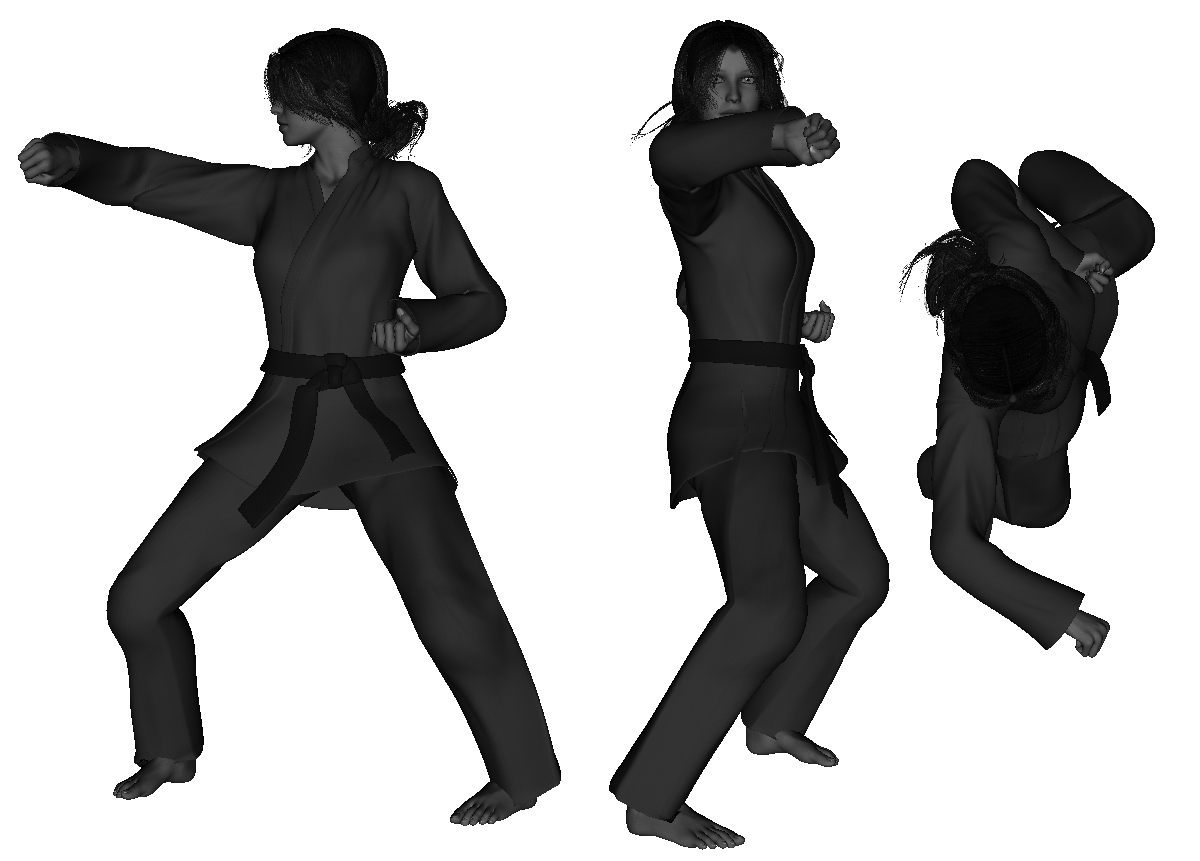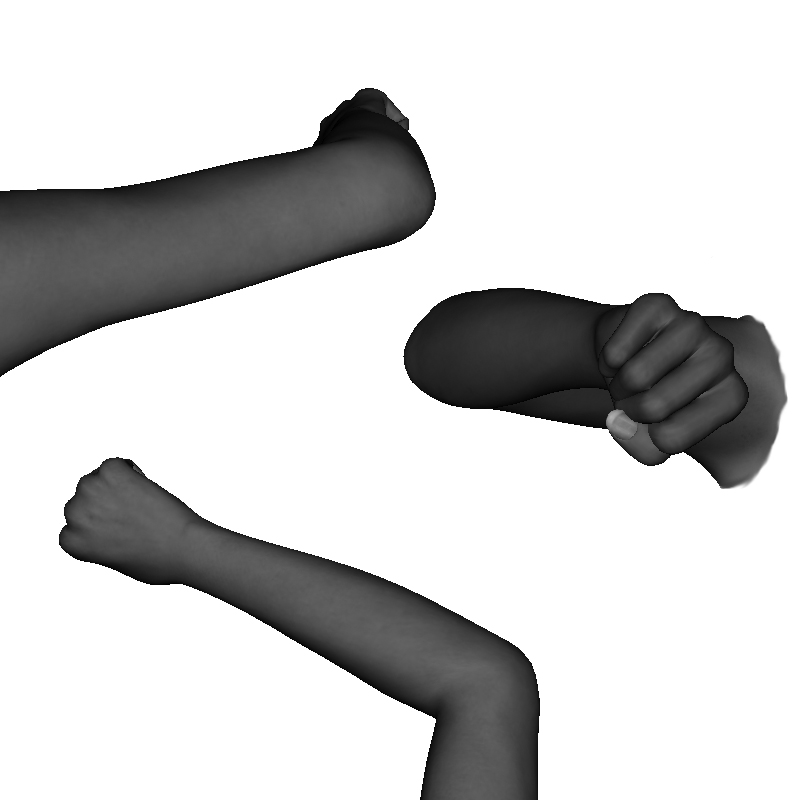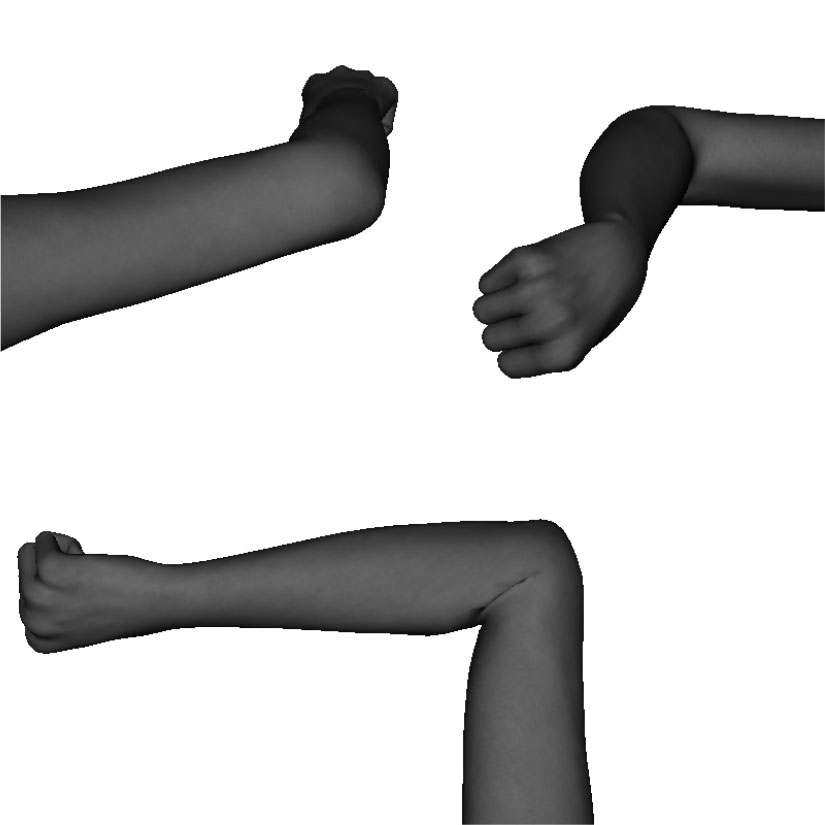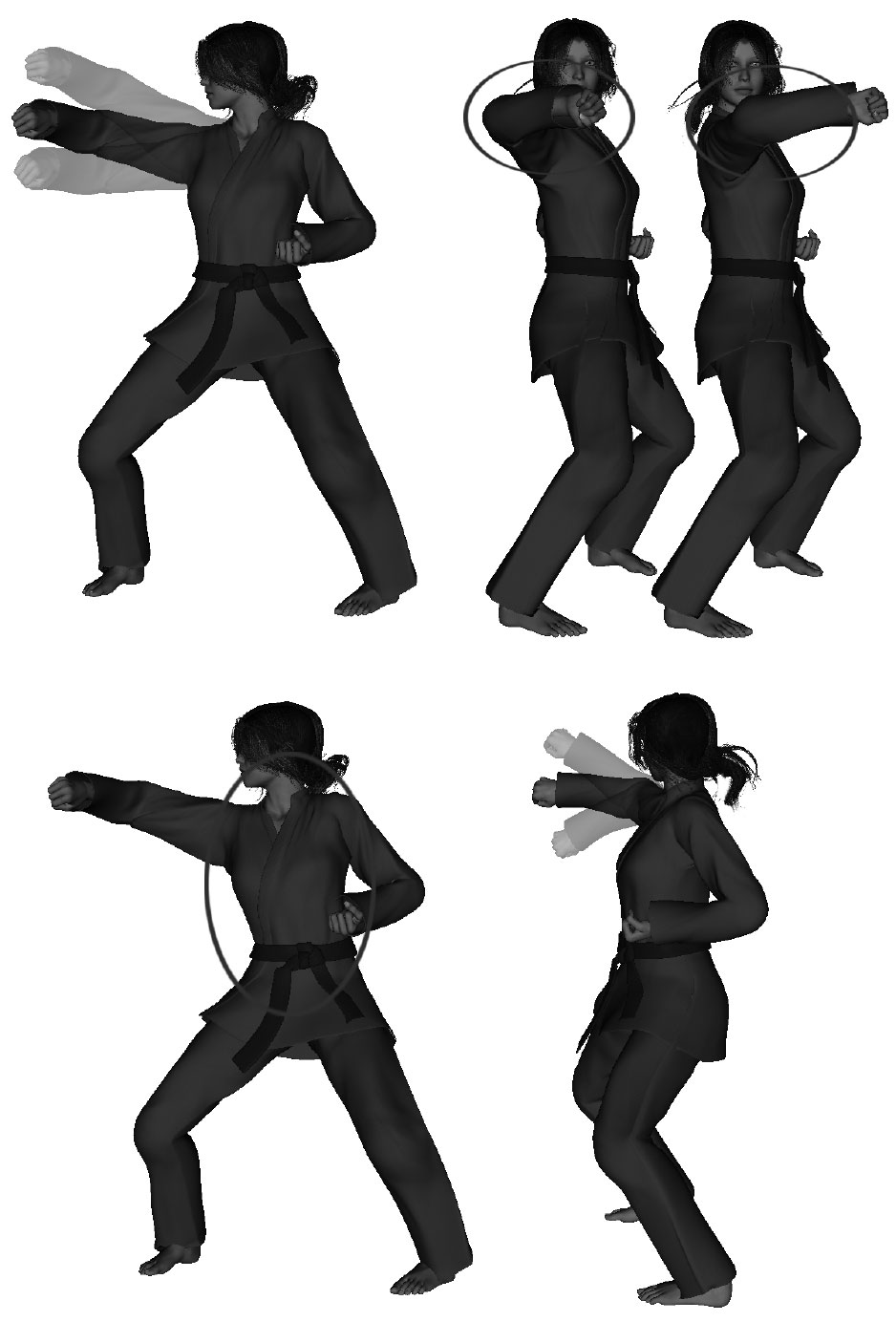| a) | proper alignments: |
| i) | Dimensions: |
| 1) | height = chin level |
| 2) | width = shoulder to shoulder, horizontally |
| 3) | depth = arm angled forward at 45 degrees away from you |
| ii) | body alignments: |
| 1) | hand - rotation matches forearm |
| 2) | wrist kept straight (not bent up / down and / or side-to-side) |
| 3) | forearm rotated diagonally upward / relatively parallel to ground |
| 4) | shoulders - relaxed |
| 5) | upper body / hips - Neutral Bow rotation |
| 6) | legs / feet - Neutral Bow rotation |
| iii) | Point of Contact - forearm (bone) |
| iv) | stance - Neutral Bow |
| b) | execution: |
| i) | Method of Execution - Thrusting |
| ii) | execute directly to target (prevent arcing path of travel) |
| iii) | improper execution: |
| 1) | improper speeds / methods: |
| A) | executed too slow (transforms into push with forearm) |
| B) | executed too tense (unable to achieve proper 'snap' of strike) (strike looks 'pushed' out) |
| C) | strike not tensed at Point of Contact (improper timing / never tensed) |
| 2) | improper alignments / angles: |
| A) | incorrect extension: |
| I) | elbow over / under extended |
| II) | final height too high / low |
| B) | incorrect rotation: |
| I) | forearm rotated to make contact with muscle (not bone) |
Comments
| a) | Common alignment errors: |
| i) | forearm not kept parallel to Point of Focus (over extended) |
| b) | Common execution errors: |
| i) | forearm kept parallel to ground during entire execution |
| ii) | forearm executed too high (not at chin level) |

Example of a proper upward forearm (right)

Example of proper upward forearm formation

Example of improper upward forearm
forearm not rotated to expose bone,
wrist bent, elbow over bent

Examples of improper upward forearm execution
improper height - high / low, width - wide / narrow,
leaning, improper rotation - over / under